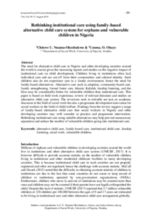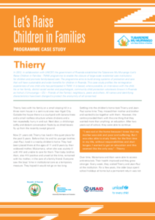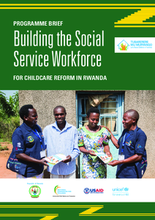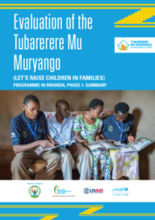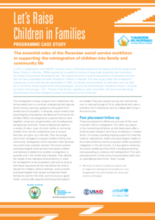Displaying 171 - 180 of 691
In this video, Dy Noeut and Kim Malin of New Smile Organisation (NSO) discuss their experience of conducting family tracing as a part of reintegration efforts in the context of an unregistered orphanage where children’s files contained missing and inaccurate information.
In this two-part video series, Nou Dalin, part of the social work team with Cambodia Children's Trust (CCT), discusses her experience of working in partnership with the Department of Social Affairs, Veterans and Youth Rehabilitation (DoSVY) to implement the Ministry of Social Affairs, Veterans and Youth Rehabilitation (MoSVY) Action Plan on Improving Childcare in Battambang Province in Cambodia.
In this video, Sreyna and Chenda, two practitioners from Hagar Cambodia, discuss their learning regarding the impact of the care setting on child rehabilitation.
Set in Central Region Ghana, using Country-Side Children’s Welfare Home (CCWH) as the main case study, this thesis investigates the underlying factors that are preventing families in the Bawjiase and surroundings from opening their homes and hearts to vulnerable children.
This paper is based on field work experience, review of relevant literature and studies on alternative child care system in Nigeria.
This case study profiles the reintegration experiences of one child who has participated in the Tubarerere Mu Muryango (Let’s Raise Children in Families - TMM) programme in Rwanda.
In collaboration with UNICEF, the government of Rwanda has established the Tubarerere Mu Muryango (TMM - Let’s Raise Children in Families) programme to ensure that all children living in institutional care in Rwanda are reunited with their families or placed in suitable forms of family-based alternative care. This report presents a summary of the findings of an evaluation of Phase 1 of this programme.
This package of materials documents successes and lessons learnt from implementation of the programme of care reform and family strengthening - called Tubarerere Mu Muryango (TMM), translated to Let’s Raise Children in Families - in Rwanda between 2012 and 2018.
This case study profiles the reintegration experiences of one child who has participated in the Tubarerere Mu Muryango (Let’s Raise Children in Families - TMM) programme in Rwanda.

